Are the Rwanda World Championships the chance to grow cycling, or is this just more sportswashing?
The Kigali Worlds are a milestone for African cycling but Rwanda's human rights record could prove their millstone.

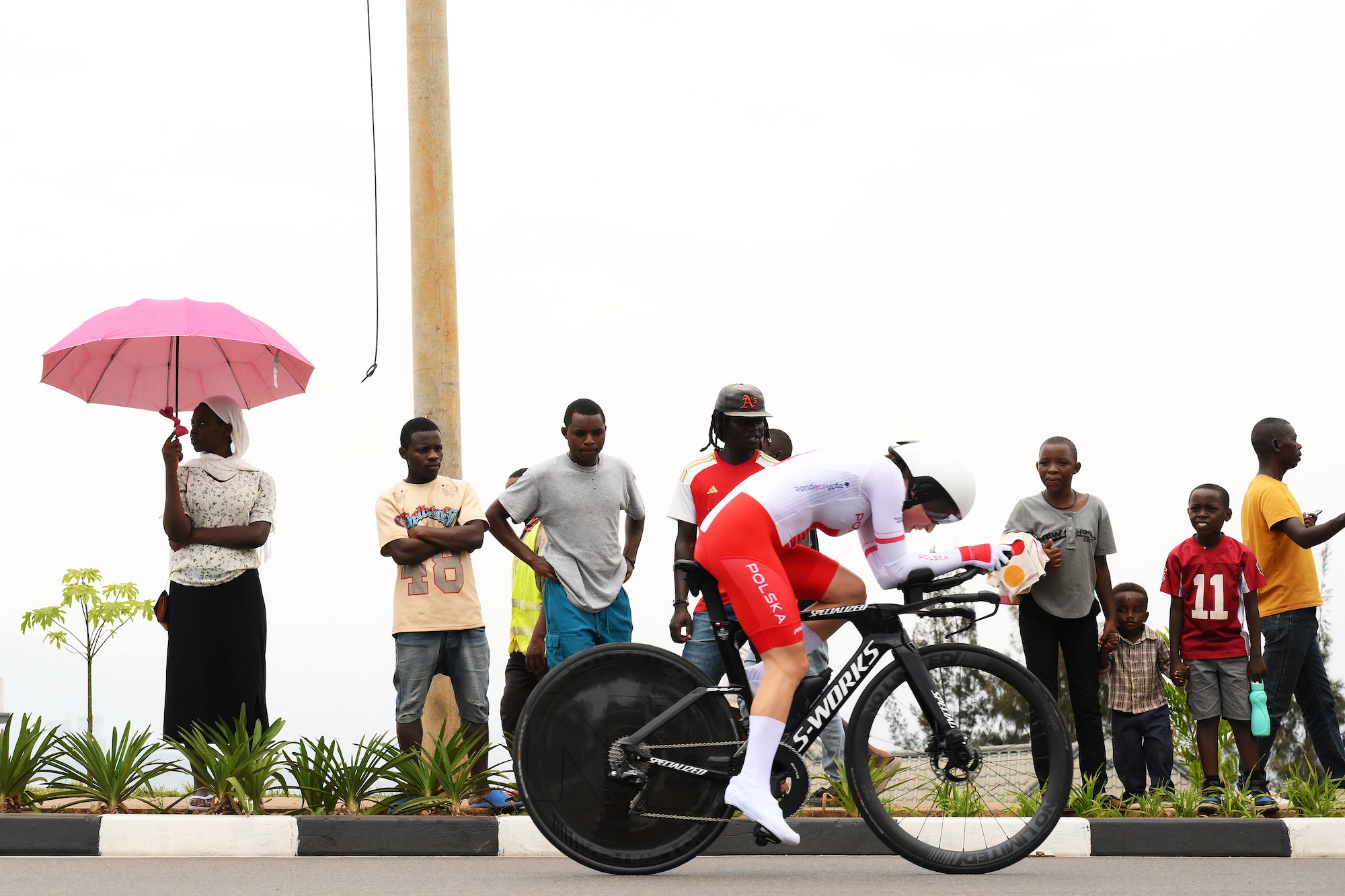
The latest race content, interviews, features, reviews and expert buying guides, direct to your inbox!
You are now subscribed
Your newsletter sign-up was successful
When David Lappartient was first elected as UCI President in 2017, he vowed to bring the Road World Championships to Africa for the first time. Eight years later, it's happening. The 2025 Worlds in Kigali, Rwanda, has been hailed as a breakthrough moment for the globalisation of the sport and a catalyst for the development of African cycling.
Lappartient said that witnessing an African Worlds was his "dream", and the UCI has invested heavily in the development of cycling on the continent in recent years, hoping to see a stream of riders move up the sporting ladder, emulating the likes of Biniam Girmay and Kim Le Court-Pienaar.
What cannot be ignored, however, is Rwanda's history of human rights abuses and its role in a brutal conflict in neighbouring Democratic Republic of Congo (DRC), as well as organisational hurdles for the championships. Will the Kigali Worlds be Lappartient's dream come true, or could it be something more akin to a nightmare?
In January, Rwanda hit the headlines after fighting broke out in eastern DRC between Rwandan-backed rebel group M23 and the Congolese military. In the following months, M23 took control of large parts of the provinces of North and South Kivu. The DRC's prime minister Judith Tuluka Suminwa has stated that approximately 7,000 people, including combatants and civilians, have been killed in the eastern conflict since January 2025.
Millions of people have been displaced since the start of the year, while reports from human rights organisations claim that war crimes have been carried out, including torture, attacks on displacement camps and forced deportations. This is a conflict that has ebbed and flowed for decades and is rooted in the same ethnic tensions that led to the 1994 Rwanda genocide.
Rwanda has always denied involvement with M23, but evidence presented by human rights groups appears to confirm that the country commands the group and supplies it with weapons, resources and intel. This leads many experts to believe that Rwanda is perpetrating war crimes and human rights abuses in DRC.
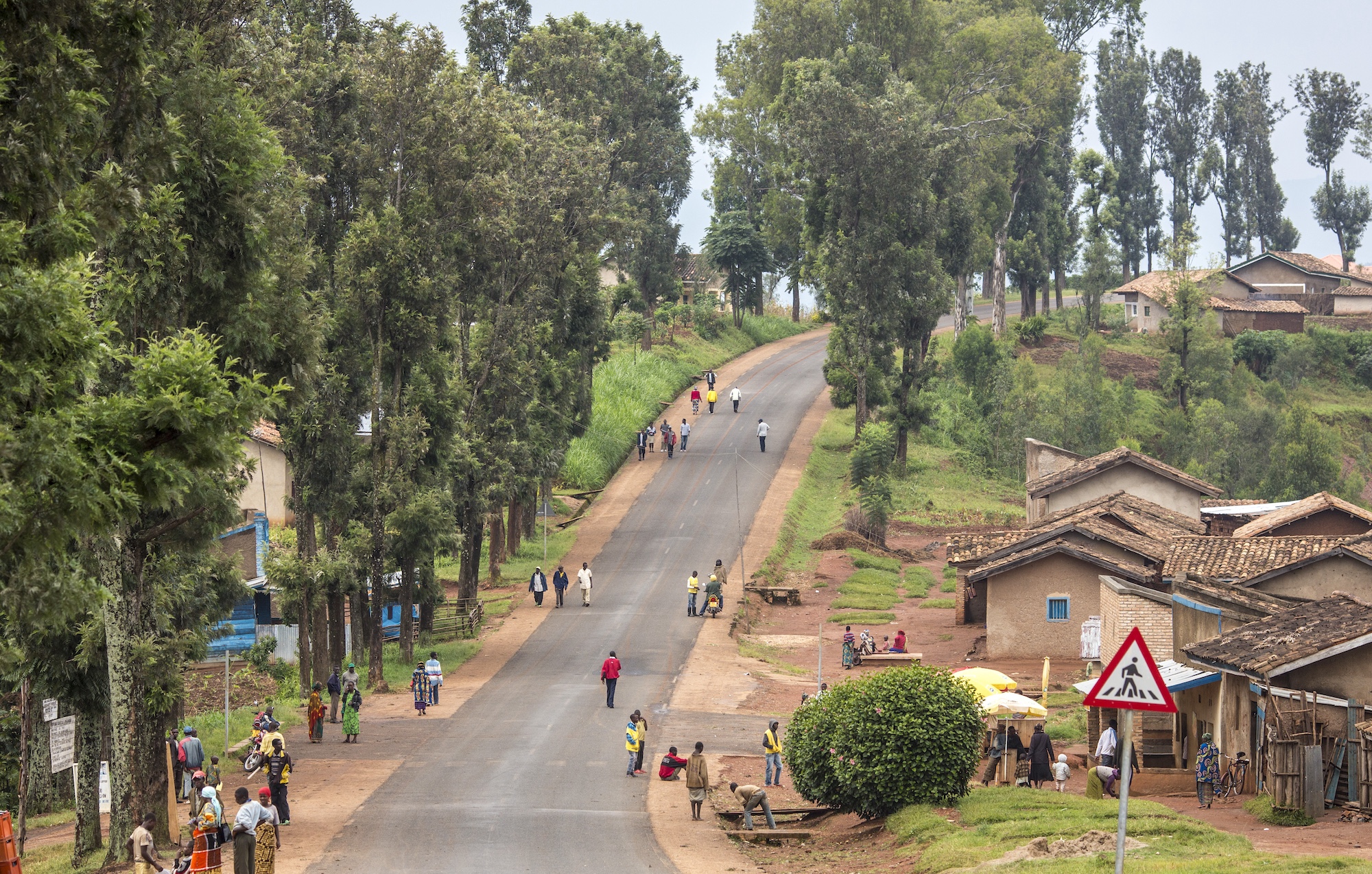
Rwanda is the first African country to host the UCI Road World Championships
Rwanda has human rights problems on its own soil too. Over the past decade, though the country has been praised for stability, economic growth and social development, reports of political repression, a lack of freedom of expression and other human rights abuses have proliferated.
The latest race content, interviews, features, reviews and expert buying guides, direct to your inbox!
"There are several pillars with which you can gauge Rwanda's human rights record, and on most of them [it] has an abysmal record," says Lewis Mudge, Central Africa director of Human Rights Watch. Despite having covered the conflict between DRC, Rwanda and various rebel militias for decades, Mudge has been shocked by what has occurred this year. "It's really hard to find words that express how surprised I am at the level of cruelty of the killings, particularly of women and children," he says.
"M23 is Rwandan-backed. This is not up for debate, any objective observer knows this... The Rwandan Defence Forces have been actively engaged for months in M23 taking territory."
"sometimes we shouldn't look at all the world's governments through the prism of our strictly European way of doing things."
UCI President, David Lappartient
The Rwandan government's role in what has been termed the Kivu Conflict led to calls from the European Parliament to the UCI to rescind its plans to host the Worlds in Rwanda. The allegation is that Rwanda is using these World Championships as a vehicle to airbrush their international image, a technique commonly known as 'sportswashing'.
Rwanda has upped its investment in sport sponsorship in recent years. Its Visit Rwanda logo has been seen on the kits of football teams such as Arsenal and PSG, and the government's next goal is to stage a Formula 1 race in Kigali.
When the World Championships in Kigali were announced by the UCI in 2021 and Lappartient was asked by reporters whether it was appropriate for cycling to host its flagship event in a nation with such a human rights record, he was bullish in his response, stating that the UCI takes human rights seriously, adding "sometimes we shouldn't look at all the world's governments through the prism of our strictly European way of doing things."
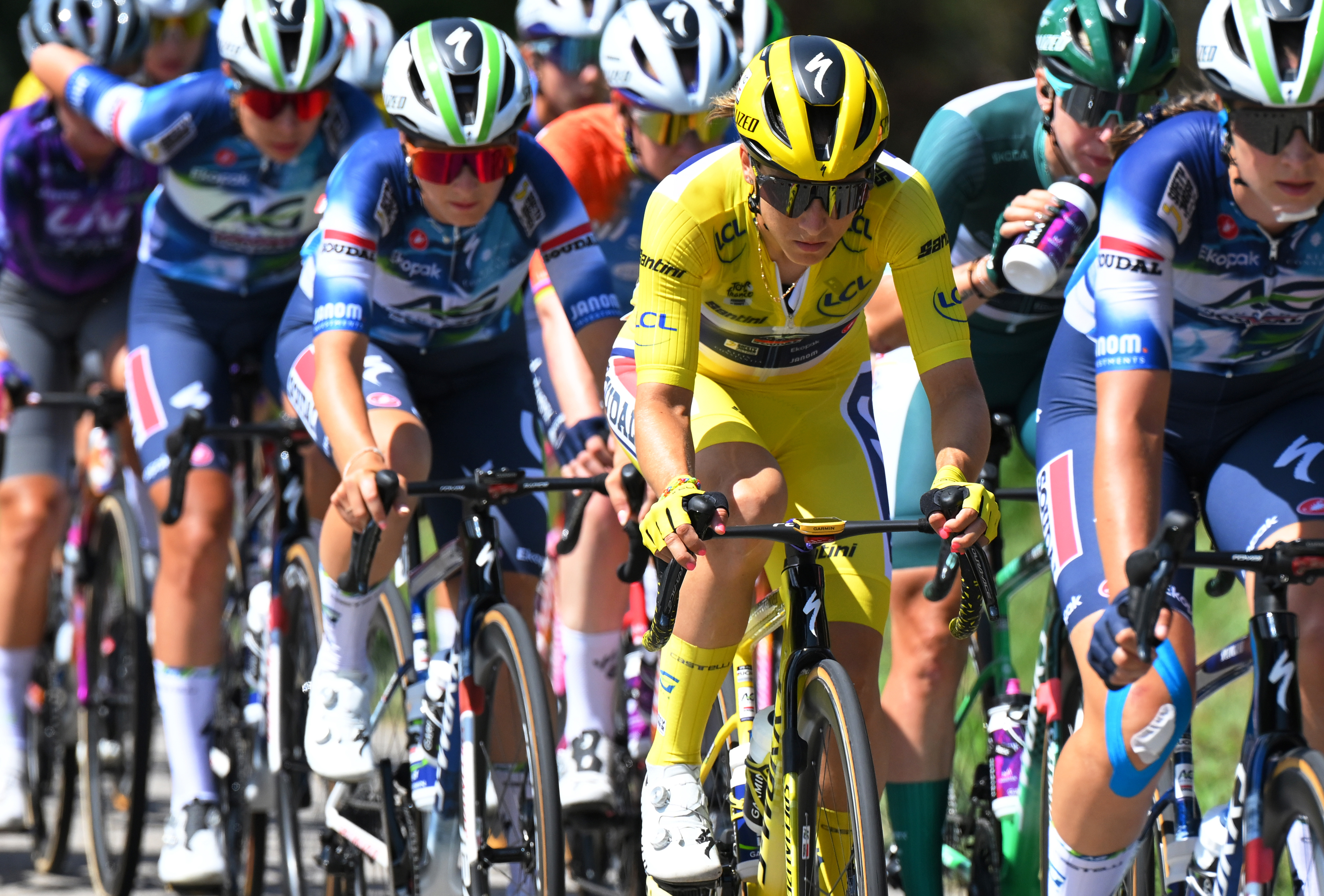
Kim Le Court Pinaar has had a breakout season with a stage win and spell in yellow at the Tour de France Femmes
More recently, he said to Cyclist: "We are confident that the situation will be under control. Our mission is to be politically neutral [and] to call for peace. It's also to make sure we are not used for political reasons." Mudge is critical of these comments, saying: "The problem with this argument is that it refuses to acknowledge, at least publicly, that sporting events are a means by which the Rwandan government seeks legitimacy and to wash its reputation.
It wants these types of events to overshadow both its domestic human rights record and what it is doing in Congo." He has a question for cycling fans too. "Are you comfortable with your sport leaning in towards these countries that are becoming more and more openly authoritarian?" Mudge stops short of advocating for a boycott of the World Championships in Rwanda, but encourages the raising of awareness of what is happening.
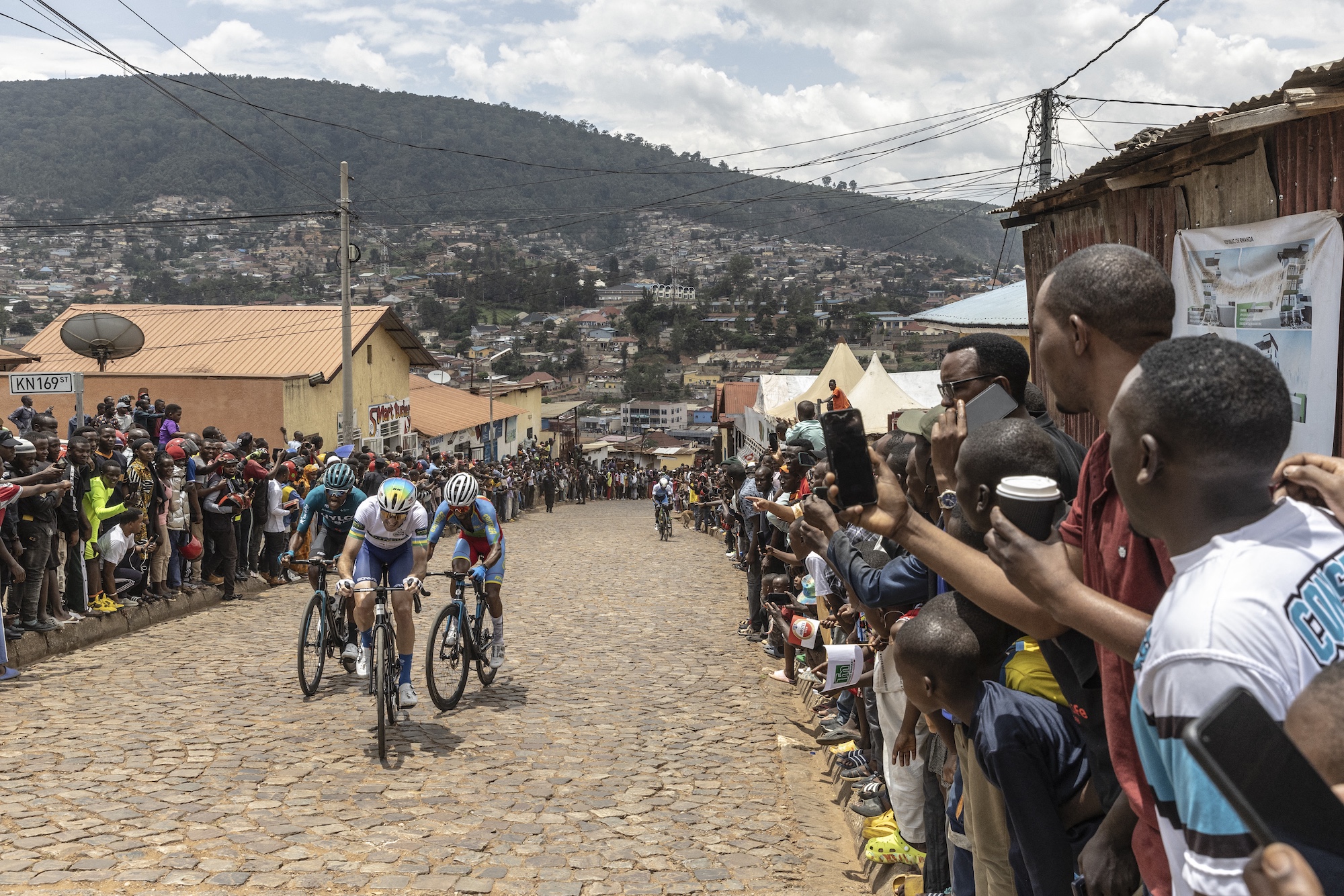
Several federations have publicly stated over the past year that the costs of competing at the Kigali Worlds have far exceeded other recent championships. The Netherlands, Denmark and Ireland have indicated that these costs have obliged them to take reduced squads to Kigali, leaving U23 and junior riders at home.
These withdrawals have been a blow to the Worlds, compounded by race favourites such as Jonas Vingegaard and Puck Pieterse pulling out, both citing that the additional pressure of travel to Rwanda would negatively impact their other goals. Belgian Cycling CEO Nathalie Clauwaert claimed that the total financial outlay for the 2025 Worlds is around double that of Wollongong, Australia, in 2022, accusing Rwanda's hospitality sector of hiking up prices exponentially.
"The African contingent have been at that disadvantage for years... it's always super expensive."
Louis Meintjes
However, another national federation told Cycling Weekly that the cost per head for the Kigali Worlds is around the same as Wollongong and Zürich. There had been talk of cost mitigations being arranged such as charter flights and hotel discounts, but it appears that no such support has been offered.
"It's always expensive for us," says South Africa's Louis Meintjes, responding to complaints about the cost. The 33-year-old adds that African federations have always faced larger logistics bills than their European counterparts: "We [the African contingent] have been at that disadvantage for years... it's always super expensive."
"[Major events] being held in Africa now and then makes the game a bit fairer." He is right that only European countries have complained about the cost. For Meintjes, staging the Worlds in Africa is a small but meaningful step toward levelling the playing field.
Ugandan rider Florence Nakagwa, who races for Canyon-SRAM zondacrypto's development team, points out that it is a welcome change for African teams not to have to worry about visa restrictions. "In the past, riders have been selected for World Championships only for their visa to mysteriously fail to be processed," she says. "This time around, that should not happen."
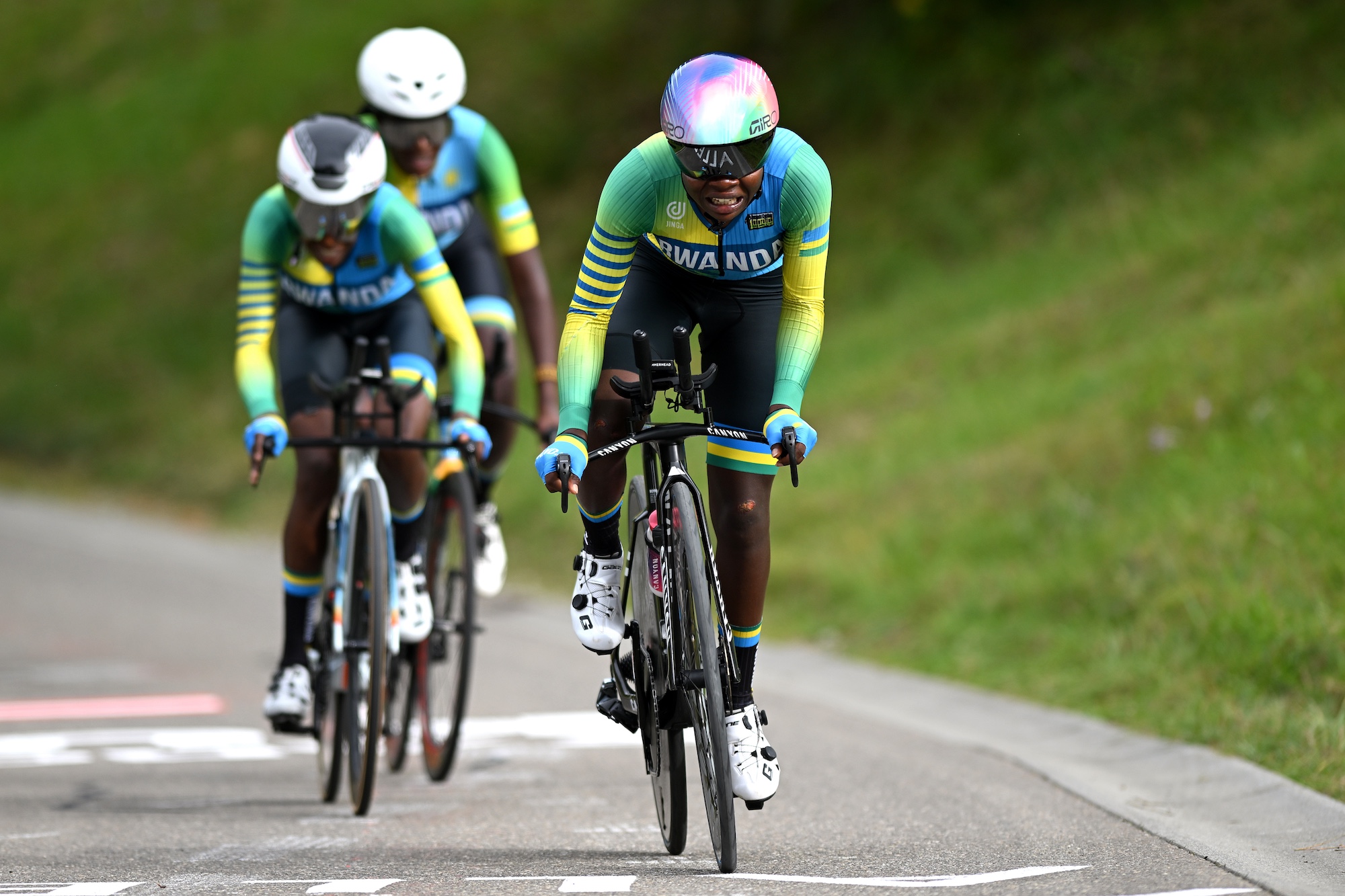
The UCI wants these landmark World Championships to create a new wave of African cycling success. The governing body hopes to see the sport globalise beyond its traditional roots, boosting African cycling and inspiring a new generation to strive to reach the top level of the sport, which has been a central goal of the UCI's World Cycling Centre (WCC).
Of course, the most important piece in the puzzle is financial investment, which is why the UCI has invited dignitaries from across Africa to Kigali, hoping to inspire them to fund cycling development in their respective nations. This could bring about more UCI racing across the African continent, better coaching and equipment for athletes and opportunities for riders to travel to races.
Taken together, such changes would strengthen the foundations of the sport in Africa and could prove to be a positive legacy. Alongside the call for funding, the WCC has been working with young talent as part of its 'Africa 2025' programme, which was launched simultaneously with the announcement of the Kigali Worlds.
Dozens of riders from across the continent were selected over a three-year period and invited to training camps in South Africa, with the best of those progressing on to further camps in Brittany, France, where they could spend several weeks working with UCI coaches and racing in local and national-level events.
WCC coach Clint Hendricks explains that it can be a rude awakening for African riders when they come face-to-face with the reality of top-level competition. "We have to sometimes just take a step back and realise where these kids are coming from," he says, speaking over video call from the UCI headquarters in Aigle, Switzerland.
KIVU CONFLICT LATEST
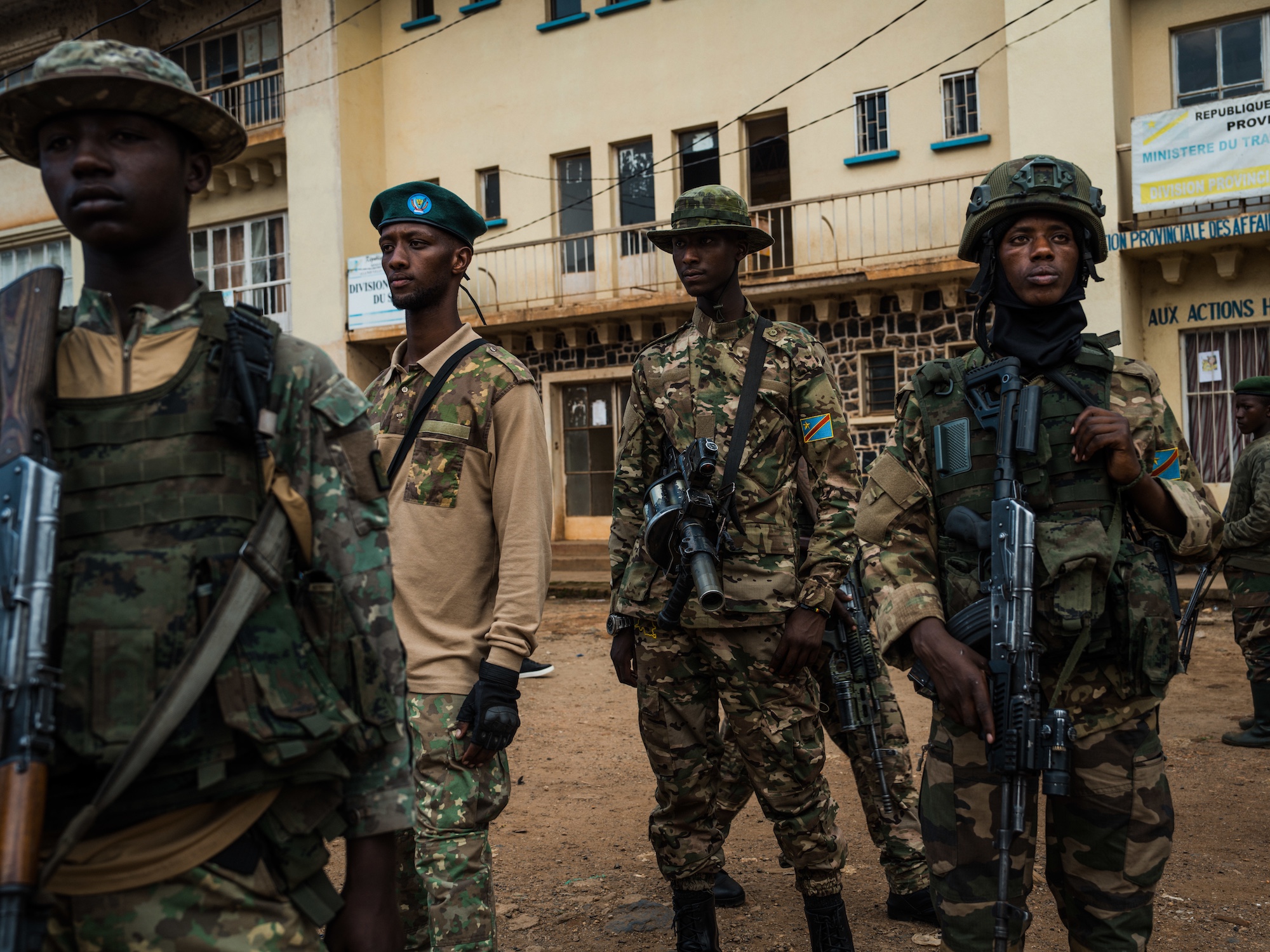
- Armed rebel group M23 continue to occupy large parts of North and South Kivu.
- Thousands have been killed or displaced, with reports of war crimes.
- The US mediated a minerals and peace deal between Rwanda and Congo in June.
- Reports of mass killings have continued after the deal was signed.
- Several other peace deals have been attempted, with little success.
- Conflict does not look likely to jeopardise the safety of the Worlds. The Tour du Rwanda route even passed just a few miles from Goma in February.
"They have raw talent and raw engines, but compared to some of the European riders who started cycling at an early age, they have a big gap to make up." It is not raw power that African riders lack, adds Hendricks, but technical and tactical aspects of the sport. In Africa, where races take place on wide roads with little furniture, the tactics are aggressive, with a clear hierarchy of talent.
Riders can soon find themselves out of their depth in Europe. Several talented Africans have made strong progress during their time with the WCC. Hendricks points to examples including Rwandan Jazilla Mwamikazi, whom he first started working with in 2023. "When she started, she didn't really understand how to operate the gears properly, and had an awkward position on the bike, but this year there's been a really super upward curve," he says. "She's not even close to her full potential yet...
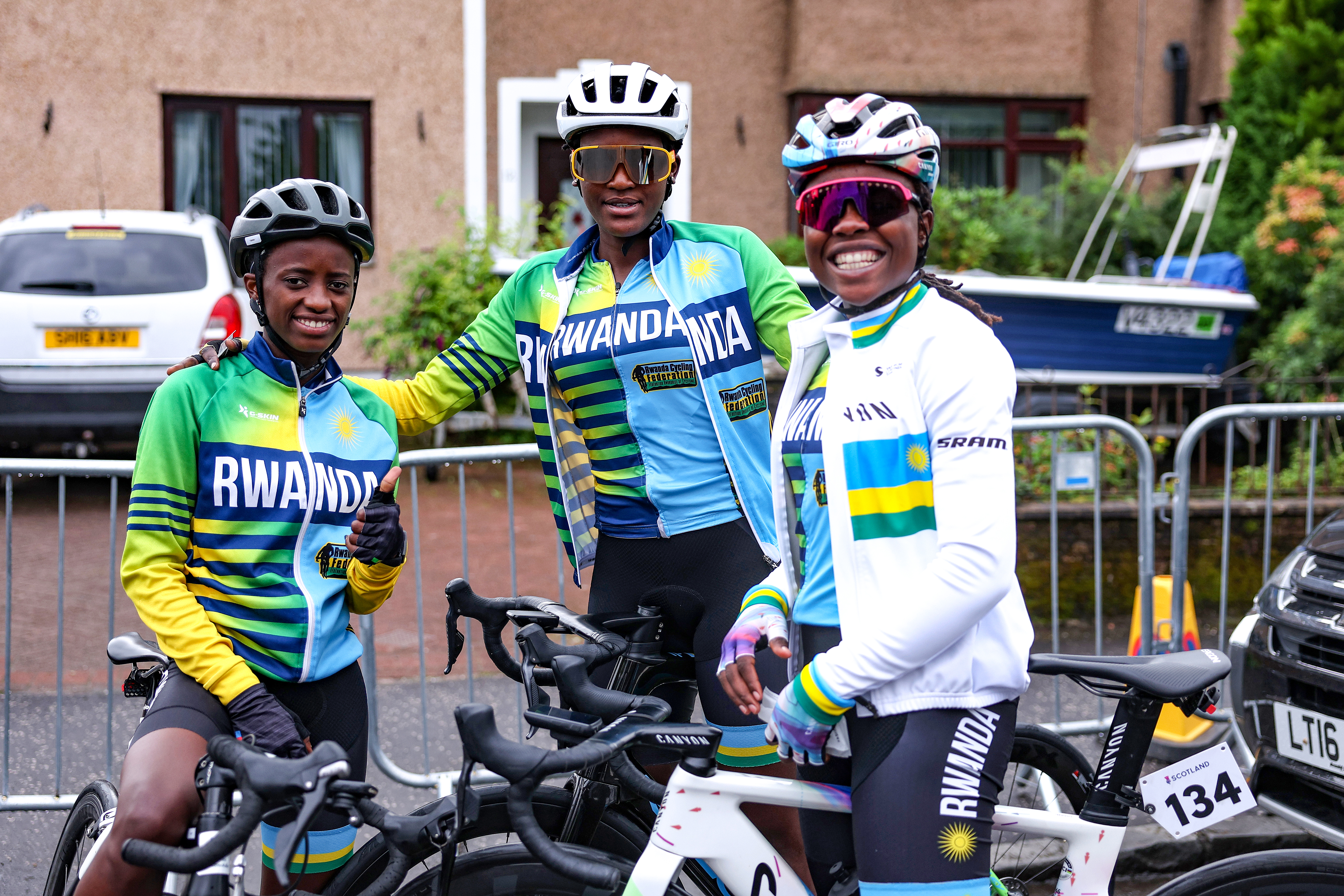
Rwandan cyclists at the 2023 world championships in Glasgow
The [European] girls are afraid when she rocks up to the line, even the local girls in Brittany. She's won eight or nine out of 10 races this year locally." The UCI is hoping to see several riders from its programme perform well at the World Championships, partly to inspire the next intake. That is one way, Hendricks believes, to avoid the Kigali championships ultimately being regarded as a one-off.
Since the demise of the Qhubeka team - a previous iteration of the team now known as Q36.5 - there has been a decline in the number of African riders turning professional. Hendricks hopes that Kigali 2025 will kick-start new programmes alongside the WCC's, with an intentional focus on developing African riders.
"Should the Kigali Worlds be seen as a stain on cycling, or a moment of pride?|
Dan Challis
So should the Kigali Worlds be seen as a stain on cycling, or a moment of pride? They may, in reality, turn out to be both. However Lappartient frames it, in awarding its biggest event to Rwanda, the UCI has knowingly aligned itself with a regime that uses sport to launder its image. Yet at the same time, it has unlocked real opportunity: the Worlds are already fuelling cycling's growth in Africa and could inspire a new generation of riders.
If the UCI is serious about globalising the sport, it cannot avoid countries with poor human rights records - cycling is already entwined with the UAE, Bahrain and Saudi Arabia, nations with their own chequered records. But Rwanda - the 'land of a thousand hills' - is different in one respect: cycling is deeply embedded in its culture, second only to football.
That passion makes the Worlds in Kigali more than a PR exercise. The sport must tread carefully in how it engages with the state, but if leaders on both sides are bold, this could be more than just another edition of the Worlds. It could be a moment to foster lasting progress, while refusing to look away from Rwanda's ongoing abuses.
Dan Challis is a freelance journalist based in the Scottish Borders. As well as writing for Cycling Weekly and CyclingNews, Dan also writes a weekly newsletter called Global Peloton.
You must confirm your public display name before commenting
Please logout and then login again, you will then be prompted to enter your display name.
